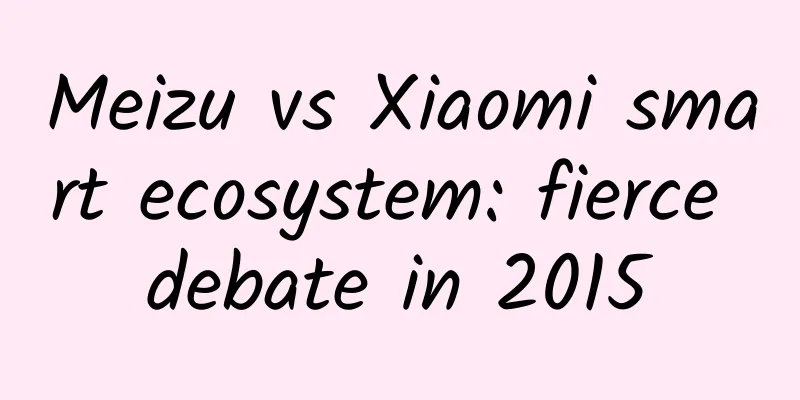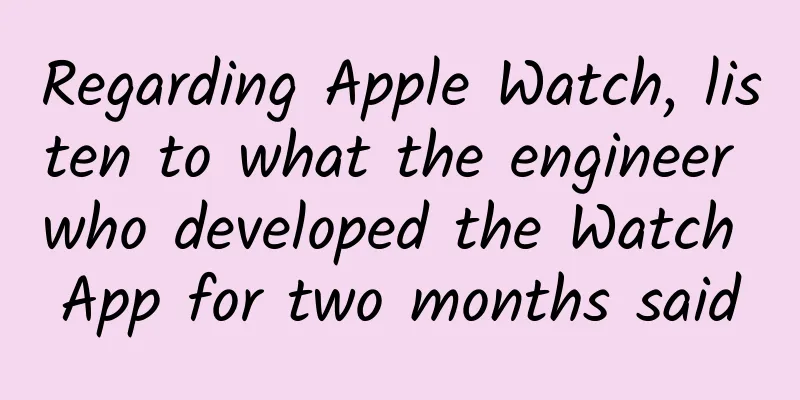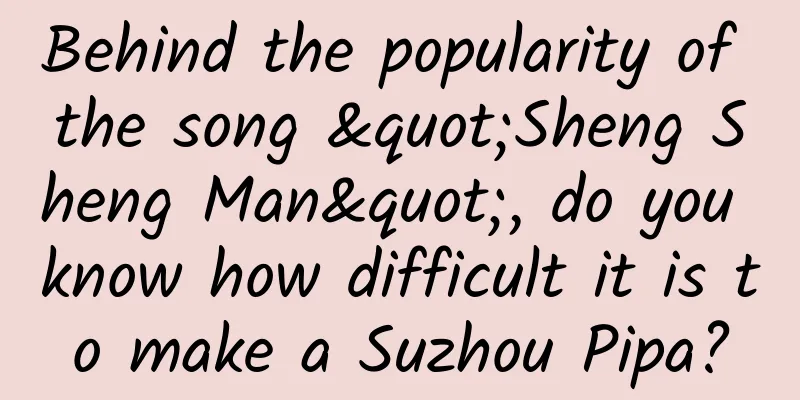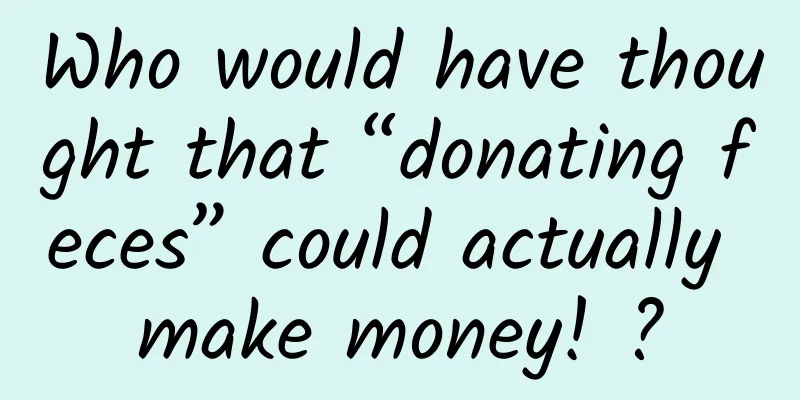Meizu vs Xiaomi smart ecosystem: fierce debate in 2015

|
As the mobile phone industry enters a period of major reshuffle, smart ecology has become a new hot spot in the smart terminal industry in 2015. 2014 was a "crazy" year for Xiaomi. The company, which released its first smartphone in 2011, had grown into a smartphone manufacturer with an annual shipment of 61.12 million units in 2014, ranking fifth in the global market share (IDC data). However, behind Xiaomi's rapid growth, it also faced problems such as the end of the fastest growth period of the Chinese smartphone market and the rapid decline in the sales price of Xiaomi phones. The concept of "smart ecosystem" proposed by Lei Jun at the end of 2014 once again triggered heated debate in the industry, and raised Xiaomi's valuation from US$10 billion in August 2013 to US$45 billion in December 2014. Xiaomi's subsequent expansion of the smart ecosystem with Midea and other companies also triggered the rapid follow-up of Meizu + Haier + Alibaba, as well as Huawei, TCL and other companies. So, will the smart ecosystem become the next "eye of the storm" in 2015? Which model is better, Xiaomi + Midea or Meizu + Haier + Alibaba? Will domestic smartphone companies make the smart ecosystem a "standard feature"? Yiguancha discussed this with senior executives from Meizu, Xiaomi, Haier, Huawei, TCL and other industries. The following is the main information: Meizu vs Xiaomi in Smart Ecosystem Competition On January 28, Meizu, Haier and Alibaba held a "Meizu Smart Ecosystem" press conference at the Beijing National Convention Center. Whether it was the new Meizu Blue smartphone or the release of the smart ecosystem strategy, Meizu was clearly targeting Xiaomi. Meizu Vice President Li Nan even expanded the battle between the two companies into a battle between the "republic" and "empire" models of smart ecosystems. Li Nan believes that "Xiaomi's smart ecosystem model is too closed, and Midea's home appliances cannot compete with Haier + Gree + Sharp and other home appliance alliances, and Kingsoft Cloud Services is not as good as Alibaba, so the open model that Meizu insists on is the most beneficial to users." However, Xiaomi does not seem to think so. Lei Jun emphasized in an interview with the media: "Xiaomi's smart ecosystem is not a closed model, but in the early stage, not many partners agreed with it, so Xiaomi chose to share risks through capital injection or equity investment with partners. As Xiaomi's smart ecosystem expands, it will gradually become open." Li Nan hit back, saying: "From mobile phone chargers to smart bracelets, from smart hardware to software application investment, Xiaomi's expansion has always been a strategy of capital temptation and category exclusivity. This can be clearly seen from the attitude of many small and medium-sized enterprises in Shenzhen towards Xiaomi." Wang Wenbin, president of Alibaba Cloud Computing and vice president of Alibaba Group, told Yiguancha that Alibaba Cloud is strong in technology, but lacks hardware capabilities on the user side, which is why Alibaba chose to cooperate with Meizu and Haier in the smart ecosystem. At this stage, Alibaba, Meizu and Haier all have their own business ecosystems in their respective industries, and they all hope to make layouts in the smart ecosystem, because building an ecosystem that is more integrated, open and interconnected across multiple brands, multiple industries and multiple terminals is very necessary for Chinese companies and is also in the interests of consumers. Li Li, General Manager of Intelligent Home Appliances of Haier Group, told Yiguancha that Haier also hoped to provide users with a complete set of Haier solutions through U-Home. However, practice has proved that users' needs vary greatly, even across multiple industries, so it is impossible for a single company to cover enough needs and satisfy users in terms of experience. Dr. Wang Jiyang, COO of TCL Communication, and Liu Jiangfeng, President of Huawei Honor Business Unit, also emphasized the concept of openness to Yiguancha. Wang Jiyang believes that the future of smart home is not about users simply controlling it remotely through their mobile phones, but about achieving intelligent perception between objects and between objects and people. Therefore, the smart ecosystem must be open and accommodate more enterprises from various industries to achieve explosive development. Will the smart ecosystem become the “standard configuration” for domestic companies? At present, in addition to Xiaomi and Meizu, Internet giants such as Alibaba, Baidu, Tencent, 360, and JD.com, home appliance companies such as Haier, Hisense, TCL, and Midea, and terminal companies such as Huawei, Coolpad, and Lenovo have all laid out smart ecosystems. So, will smart ecosystems become a standard for domestic companies? For mobile phone companies, will not entering the smart ecosystem necessarily mean being eliminated? Lei Jun said in an interview with the media that Xiaomi believes that in the next 3-5 years, or within 10 years, all personal terminal devices used by everyone and home appliances will be intelligent and all will be connected to cloud computing. Therefore, the success of the smart ecosystem is extremely critical to Xiaomi, and Xiaomi's strategy is to connect all smart devices with mobile phones as the center. Li Nan, Vice President of Meizu, told Yiguancha: "Smart ecology will definitely become a major trend in the future development of the industry. Meizu hopes to gather enough companies to build a complete ecology, form an open and unified standard, and thereby gain user experience and user scale." As to why Meizu is still working on smart ecology in 2015, a key year for the expansion of smartphone scale, Li Nan replied: "If the competitor (Xiaomi) gets ahead again, the scale will be terrifying once it is expanded. 2015 will be a key year for the establishment of the smart ecology pattern." Liu Jun, executive vice president of Lenovo Group and president of the Mobile Business Group, and chairman of the Motorola Mobility Management Committee, told Yi Guancha: "The general trend of intelligent ecology is certain, and Lenovo is also actively planning and innovating." Zhu Fanghao, president of Coolpad Dashen, said that the smart ecosystem will definitely become the focus of competition among Internet giants, terminal companies and home appliance companies in the future. One of the important goals of Coolpad and 360 in establishing a joint venture is to build a smart ecosystem. TCL Communication COO Wang Jiyang believes that the interconnection of smart terminals and smart homes will definitely be the general trend of the industry. Single terminal categories that do not enter the smart ecosystem will lose user attention and market competitiveness. Will 2015 be the “eye of the storm” for the smart ecosystem? Judging from the overall layout of Internet giants, terminal and home appliance companies, the smart ecosystem will become the next "eye of the storm" that all companies are optimistic about and competing for. So, will 2015 be the key year for the full outbreak of the smart ecosystem? Lei Jun of Xiaomi and Li Nan of Meizu both regard 2015 as a key year for the establishment of the smart ecosystem. Liu Jun, executive vice president of Lenovo Group and president of the mobile business group, believes that 2014-2015 is still the starting year for the smart ecosystem, and it will not explode suddenly due to the limitations of industry standards and the current state of the ecosystem. Liu Jiangfeng, president of Huawei's Honor business unit, also believes that "we have to wait and see. In 2015, Huawei Honor will still focus on paying attention to and trying to lay out the smart ecosystem." Xie Qingjiang, president of MediaTek, told "One Observation" that from the perspective of the supply chain, the technology is already in place, and MediaTek will fully deploy smart homes and wearable devices from the chip end in 2015, but from the perspective of industry maturity and user acceptance, 2017 should be the time node for the explosion." According to Yiguancha, all parties have regarded the smart ecosystem as the next "eye of the storm" after smartphones, so how to lay out the layout will determine the trend of each company in the next 3-5 years. The Xiaomi model can quickly concentrate funds, MIUI and Xiaomi mobile phone users, as well as the resource advantages of the "empire" built by Lei Jun through funds. It is more efficient, with high returns and huge risks. The open model advocated by Meizu + Haier + Alibaba can unite more industry companies, quickly accommodate a large number of cooperation and total users, and share risks. However, a decentralized alliance will also lead to a decline in execution, and the journey to formulate unified standards is destined to be long. Looking back at 2011, when smartphones first started to explode, no one was optimistic about Xiaomi's mobile phone model. However, Lei Jun eventually took advantage of the situation and quickly expanded its scale, forcing traditional mobile phone companies to reform themselves. So, four years later in 2015, can Lei Jun still replicate the development model of that year in the field of smart ecology? For domestic terminal companies that have suffered "huge losses" in the past few years, will they avoid "wearing new shoes and walking the old path" this time? |
<<: Android version split, where should developers go?
>>: Chukong Technology officially releases "One-stop solution for game development"
Recommend
#千万IP创科学热门# How can a snail with the word “parrot” added to it not be a snail?
Shanxi Natural History Museum has launched #全民IP创...
Tencent Operation Strategy: How to better understand users’ product operations?
Early stage of operation : quickly familiarize yo...
BYD achieved its second 5 million sales in just 15 months
On November 18, BYD held a press conference to ce...
China Passenger Car Association: Global auto sales to reach 89.18 million units in 2023, up 11% year-on-year
Cui Dongshu, secretary general of the China Passe...
If you want users to click on your ads, try these 5 methods!
We have to admit that we live in an age where adv...
Survey shows Android users watch more porn than iOS users
Friends who have watched adult pornographic video...
Is it true that updating software can reduce radiation?
Audit expert: Meng Meng Associate Researcher at t...
2023: Relive the amazing moments of "the great power's heavy weapon"
C919 "spreads its wings", giant ships g...
The most popular way of Internet promotion nowadays!
We have sorted out seventeen popular Internet pro...
Case analysis: PepsiCo online and offline linkage planning case
01 Purpose ① Enhance brand image ②Add new users ③...
Onions prevent cancer and reduce blood sugar. Are they edible "heart stents"? Purple and white skins are actually very different
Expert of this article: Zhang Zheng, PhD in Nutri...
Apple iOS 15 official version WeChat voice "press and hold to speak" has a delay
IT Home reported on October 12 that the official ...
Who is the next BAT?
Open Google, set a time range, search for the key...
【3Dmax】LM Ranger advanced animation full process case teaching binding chapter
【3Dmax】LM Ranger Advanced Animation Full Process C...
WeChat 8.0 exclusive red envelope grayscale test: can be sent to a specific person
On January 29, WeChat 8.0 is currently testing an...









